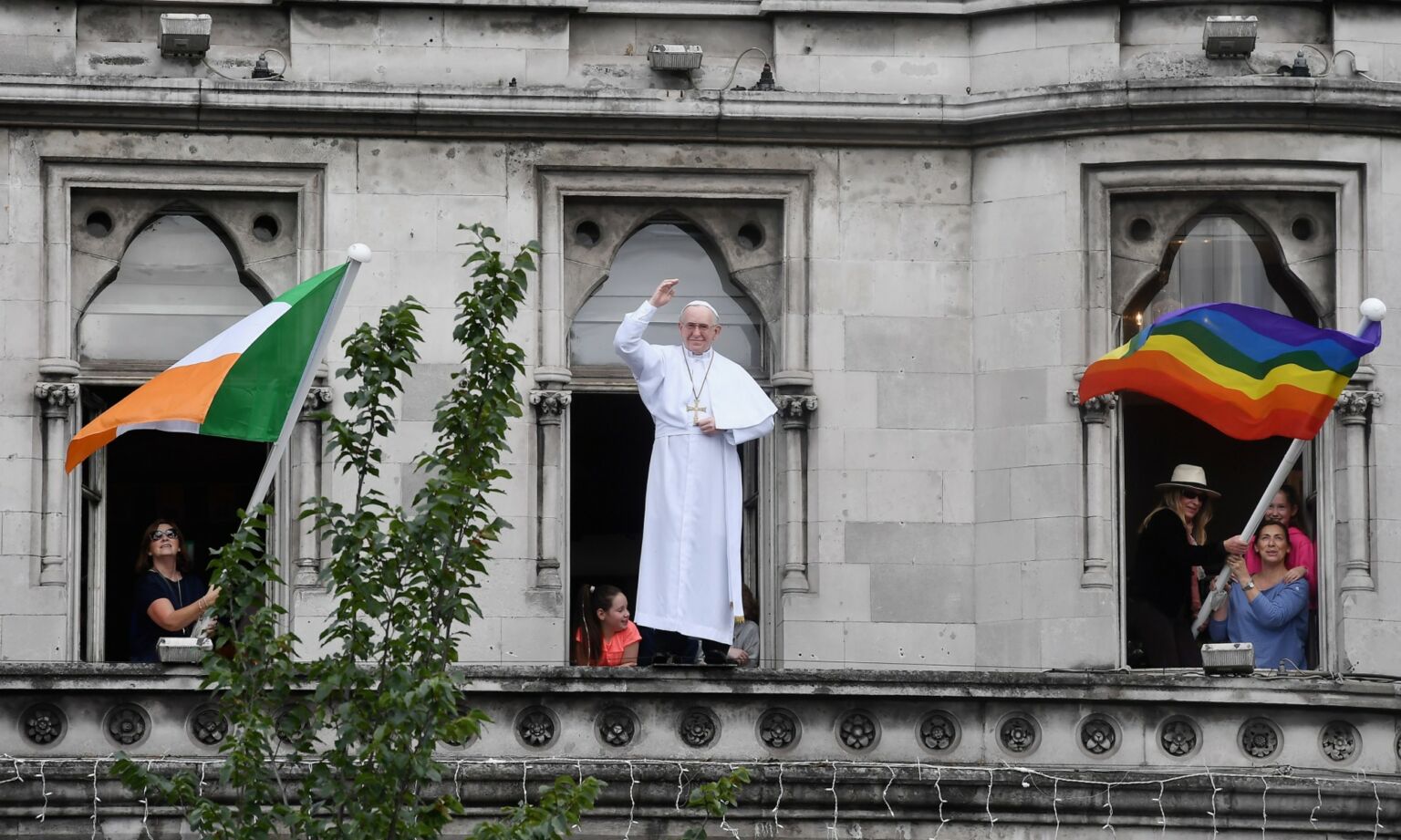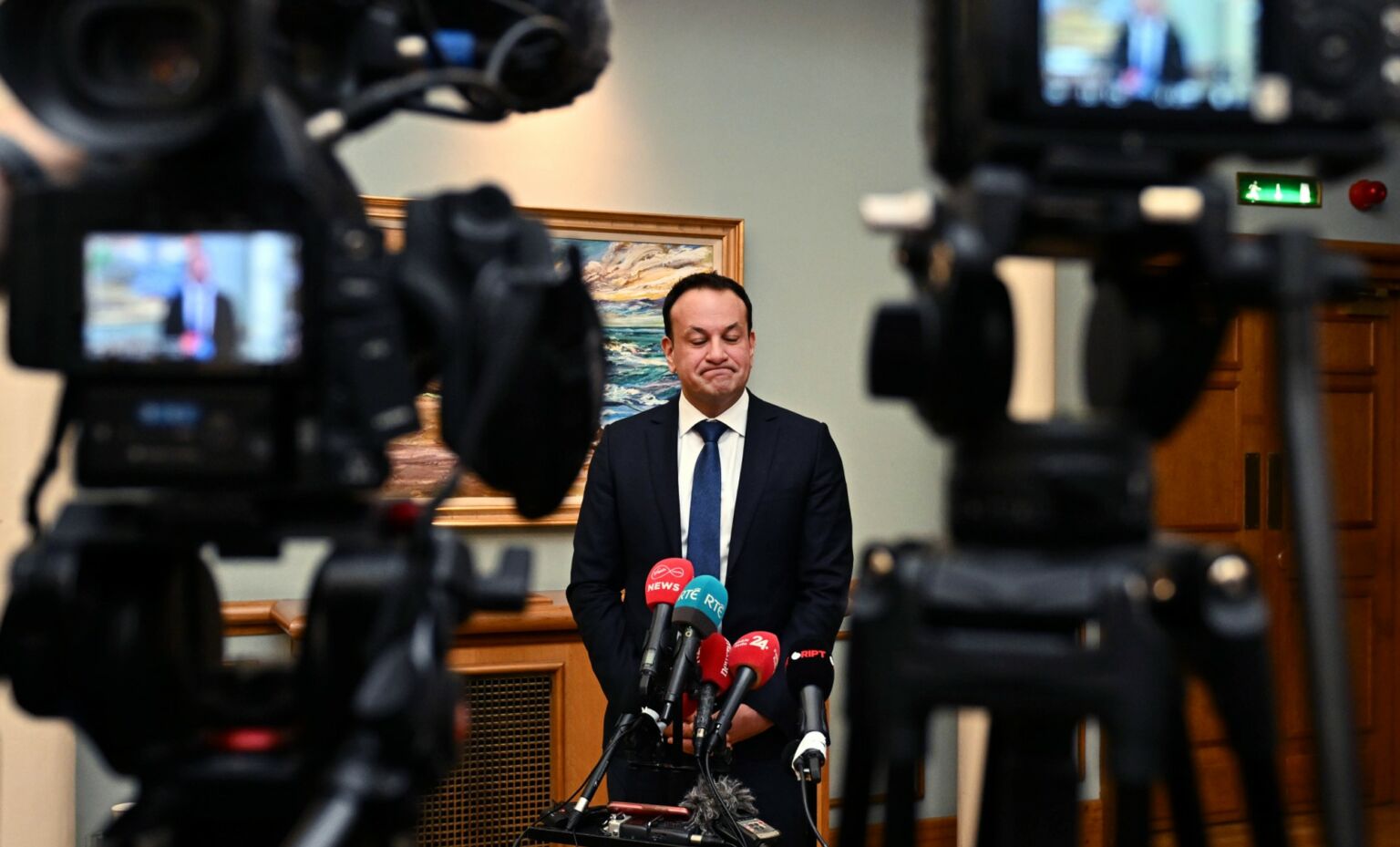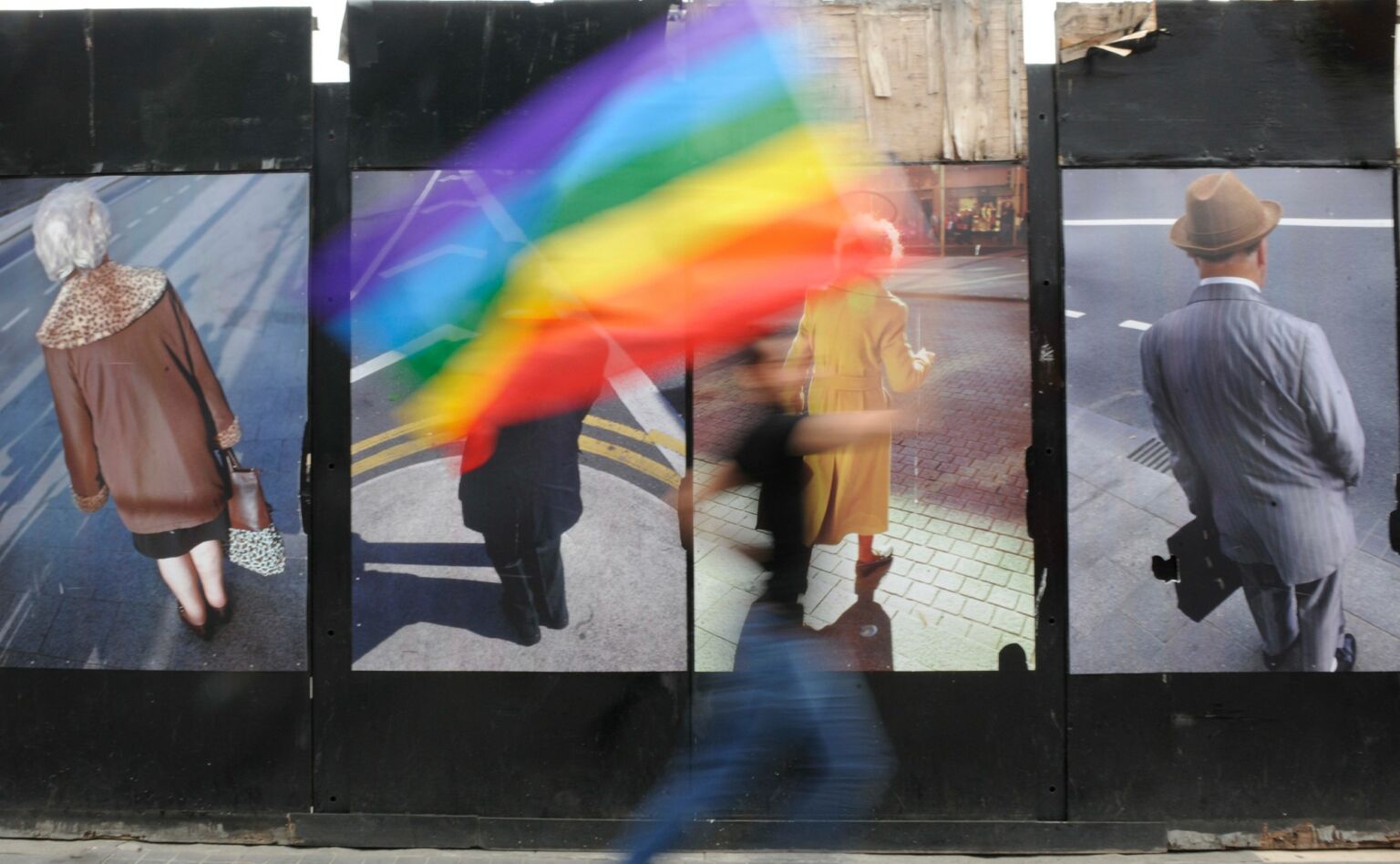
Long-read
Ireland and the terrible truth about wokeness
Ireland’s latest referendum exposed just how zealous and reckless the elites’ culture war has become.
Hands down my favourite part of the referendum revolt in Ireland last week was the discovery of ‘miraculous medals’ among the ballot papers.
A miraculous medal is a small pendant that features the Blessed Virgin. Normally, she’s shown crushing a serpent beneath her feet. They’re devotional medallions. They come in silver or gold. And to some Catholics, they’re a means of asking the Virgin Mother for an intercession, for her holy assistance in the healing of a sick person or the enactment of some other kind of miracle. And would you believe it – electoral officials found some stuffed among the ballots, no doubt by voters hoping Jesus’s mum might miraculously make the dual referendums go their way.
In the end, they didn’t need the Mother of God. The mere mortals who make up Ireland’s electorate were enough to see off the government proposals put forward in the referendums – first, to update the meaning of the word ‘family’ in the Irish Constitution, and second to alter the constitution’s ‘sexist’ reference to a woman’s ‘duties’ in the home. Huge majorities said ‘No’ to both of these suggested amendments.
And yet the presence of the medals was touching nonetheless. They found some in Letterkenny in Donegal. In fact, reports the Donegal Daily, ‘several of the miraculous medals turned up at various ballot boxes across the county’. Others were discovered in Limerick. At one polling station, no fewer than 11 medals were found. ‘“Yes” campaigners didn’t have a prayer’, quipped Donegal’s paper.
I’m not a miracles kind of guy. I don’t believe in God, far less his mum. And yet there was something reassuring in this revelation that Old Ireland ain’t dead yet. That for all the Irish elites’ turbo-smug embrace of woke – of the post-Catholic, post-national, post-everything politics of permanent flux – there still exist people like my late grandmother. Anyone who grew up among the older generations of rural Ireland will be familiar with miraculous medals. You’d have one pressed into your palm before a long journey. Every new car was fitted with a medallion of St Christopher before being taken on to the roads. Holy water was forever being rubbed on our foreheads, in case we came across serpents of our own.
You could be forgiven for thinking such people were extinct. The only time you see elderly religious Irishwomen these days – miraculous medals were almost entirely the preserve of women – is in a Martin McDonagh film for the chortling entertainment of the English middle classes who patronise Curzon cinemas. She’ll be wearing a shawl and a scowl and saying something stupid. That’s how the cultural architects of New Ireland view Old Ireland: as a bizarre, mercifully dead place that was peopled by eejits and hysterics.
And yet it turns out those people aren’t museum pieces after all. They’re not a vanished tribe. They’re still out there. And best of all they’re pleading with the Blessed Virgin not to crush a serpent this time, but to crush the politically correct overclass of Dublin and its ceaseless meddling in constitutional and historical affairs.
A holy medal tumbling from a ballot box as the voting papers are emptied out feels like a cry from the past. The quiet roar of a forgotten people. It’s as if the older Ireland that Irish people are now instructed to feel ashamed of – with its strange traditions and superstitions – is whispering into the political ether: ‘We’re still here.’
The referendum results more broadly felt like this – like a defiant defence of tradition against a haughtily indifferent Dublin elite that dresses up its disdain for Ireland’s past in the language of ‘modernisation’. The vast majority of voters will not have been miraculous-medal people, of course, but what did unite many of them was a desire to stand up for history against today’s Year Zero establishment. That’s what makes this ballot-box revolt so significant, and so stirring.

Voters were asked to say Yes or No to two amendments to the constitution of 1937. First they were asked if they wanted to change the meaning of the word ‘family’ so that it would extend beyond marriage to include other ‘durable relationships’. Then they were asked if they’d like to change the constitution’s focus on a woman’s ‘duties’ in the home by adding a new clause acknowledging that all sorts of ‘family members’ provide care in the domestic setting. The political class invested huge amounts of money and energy into encouraging voters to say Yes to these sweeping tweaks, but voters refused to play ball. Sixty-eight per cent said No to altering the definition of family, and 74 per cent said No to updating the section on a woman’s duties.
It was a crushing defeat for the establishment. Fianna Fáil, Fine Gael, Sinn Féin – all lined up behind Yes. Dublin’s chattering class is fuming with the voters. They’ve rejected an opportunity to ‘extract’ Ireland from the ‘constitutional straitjacket of Catholic social teaching and anachronistic views about women and girls’, says one columnist. This vision of certain Irish people as ‘anachronistic’, and the constitution itself as hopelessly outdated, is widespread among the educated classes. Indeed, taoiseach Leo Varadkar had said it was time to change the ‘very old-fashioned, very sexist language about women’ in the constitution. In the elites’ eyes, presumably, the folk who said No to this project of ‘modernisation’ are both very old-fashioned and very sexist.
In truth, voters were defending their way of life. They were standing up for institutions and ideas that matter hugely to them – marriage, motherhood – against the unilateral meddling of a distant establishment. They understand that adding other forms of ‘durable relationships’ alongside ‘marriage’ in the constitution would represent an implicit demotion of the importance of marriage. The specialness of marriage is diluted when it’s treated as just another relationship. It clearly feels alien to elites of a globalist bent that ordinary people still put so much store by marriage, but they do. Dublin’s elites might derive their sense of meaning and clout from modern forms of networking and ideological camaraderie, but others prefer the rooted experience of lifelong commitment. For many, marriage is their most important source of solidarity.
The elites are rolling out their excuses for why they failed to get their way. The referendum questions were worded badly, voters were hoodwinked by the far right, etc etc. In truth, the dual referendum represented an existential clash of values, and the values the elites don’t like won the day.
To many of us it makes perfect sense that ordinary people would go out to defend the institution of marriage and the traditional family. After all, these are institutions in which people take refuge from the vagaries of market society and cultivate their own spaces of love, independence and solidarity. The instinct of the post-national elites might be to throw open everything – the state, society, community – to the requirements of global capital. But the instinct of others is to do the opposite: to batten down the hatches of home life against what they rightly perceive to be the economic and ideological menaces of neoliberalism.
Even more important, the resounding No vote was a defence of the past from an elite that prefers the constant churn of ‘modernisation’ to any appeals to tradition. Varadkar’s invitation to the Irish people to overhaul the ‘very old-fashioned’ language of the constitution was telling. It spoke to the elites’ agitation with all things old, their discomfort with history itself. You get the impression these days that the Dublin establishment is mortified that it runs a country that was once so religious and so rural. Where gay sex was a crime until 1993 and divorce wasn’t legalised until 1995. Waging ceaseless war on Ireland’s own past is increasingly the means through which Ireland’s new rulers seek to demonstrate their moral fitness for membership of the globalist superclass.
National self-loathing is a veritable industry in modern Ireland. Cultural influencers have reimagined the past as a constant hell of Magdalene laundries, spiteful priests, alcoholism, stupidity and petty nationalism. Virtually every Irish film and novel is a depressing tale of how ignorance once reigned supreme on this benighted isle. The old English caricatures of the Irish as a feckless race have nothing on the new Dublin elites’ caricature of the Irish as the damaged victims of a demagogic church and nationalist strongmen. You don’t have to think Old Ireland was perfect to recognise that these grotesque renderings of Irish history are less about historical truth than about proving the virtue of the new elite by constantly contrasting it with the vices of the old.
Last week’s dual referendums must be seen in this cultural context: as the latest elite effort to unanchor Ireland from its past, to liberate the nation from its historical shame. In spurning this invitation, in refusing to disavow the ‘very old-fashioned’ and ‘very sexist’ founding document of their nation, voters were not only saying ‘screw you’ to the current establishment – they were also revolting against the cult of Year Zero, against the frenzied disembedding of nations from their pasts. This is a core part of the woke project: the inculcation of historical shame in the public in order that they might agree to be delivered into a newer, better, woker future by a self-styled enlightened ruling class. And it’s a project the Irish people have just said No to.
Across the West, performative hostility to one’s history is all the rage in establishment circles. You see it in the US, in the efforts of media elites to alter the very founding date of America, from 1776 (the year of American Revolution) to 1619 (the year slaves first arrived). You see it in the UK, where the National Trust lectures us about our history of slavery, the Church of England issues solemn apologies for its links with colonialism, and bourgeois youths tear down statues of ‘problematic’ people and demand the renaming of buildings and streets. You see it in the European Union, which depicts everything that happened prior to 1945 as iffy and archaic and everything since then as a gallant effort to socially re-engineer the continent as a woke, peaceful entity.

And in Ireland you see it everywhere. In culture, entertainment, politics. Witness not only the fashionable shame the Smart Set feels towards the Catholic era, but also their bristling disdain for the very founding of the nation. Even Easter 1916 is an embarrassment to a new elite that prefers to pool its sovereignty in the EU rather than stand up for the territorial sanctity of the republic. That young men and women died in order that Ireland might govern itself is mortifying to these knowledge-industry elites who prefer to be governed from Brussels. And so they distance themselves even from the ideals of Irish independence.
We want nothing to do with a ‘backward-looking idea of sovereignty’, said then leader of the opposition, and now tánaiste, Micheál Martin in 2017. Instead, Ireland is ‘absolutely committed’ to the EU, he decreed. Nationhood is out, subservience to globalist institutions is in. Perhaps, muses one Irish writer, those who fought for Ireland’s self-determination were really ‘ignoble fanatics’. How sad, he says, that even today Irish people are ‘content to comfort [themselves] in the blanket of the rebel creed’.
There it is again: the haughty diagnosis of ordinary people as too enamoured of history. As too content to be strangled in the ‘straitjacket of Catholic social teaching and anachronistic views about women and girls’ or wrapped up warm in the ‘blanket of the rebel creed’. The educated position today is to rise above the past, to look down on it, to distance oneself from yesteryear’s ‘very old-fashioned’ ideals. Ordinary people’s refusal to do this, their stubborn insistence on valuing history and its achievements, bemuses the elites as much as it horrifies them. To the rest of us, though, again it makes sense. People want to feel connected to history, to place, to their own part in the story of their community. The elites’ suggestion that we disavow all of this is ultimately a demand that we disavow ourselves.
Modern Ireland, more than any other European nation, reveals the destructive truth about woke. There is a tendency to see woke as a joke. As the daft pastime of bourgeois blue-hairs. As the ideological exuberance of posh kids led astray on campus. In truth, woke is a mammoth elite project whose fundamental aim is to remake and ‘improve’ the masses.
It is a process of dehistoricisation, deterritorialisation and demoralisation. That is, it seeks to rent us from our own history by inducing shame towards the past. It aims to deprive us of a meaningful connection to territory by diluting national sovereignty and moving us ever closer to a globalist system of governance. And it longs to re-educate us out of our problematic morals – our ‘very old-fashioned’ belief in things like family, marriage, motherhood, even biological sex – through the relentless promotion of supposedly better, more enlightened ways of thinking about social relations.
Ireland is further advanced than most in this authoritarian project. Shame about 1916, open disdain for sovereignty, neverending alarm over the religious excesses of the 20th century – this is the stuff of ‘intellectual’ discourse among Dublin’s movers and shakers. There are few cultural elites as boastfully alienated from their history and their people as Ireland’s. That’s what the dual referendum really represented: a further attempt to entrench the cultural power of this new establishment and to diminish the ‘very old-fashioned’ morality of the masses. The elites’ stunning defeat in this staged clash over history, and over meaning itself, is an important moment.
What many people instinctively recognise is that the enforced alienation of them from their own history, territory and morality would render them more malleable to the new ruling class. It would make them blank slates on to which the Year Zero elites could write whatever story and ideology they wanted. In such circumstances, people’s clinging to tradition, their pulling up of the ‘blanket’ of the past, is not ‘anachronistic’ – it is survival. It is an act of self-protection against an establishment that prefers us suggestible rather than rooted and confident. Family, community, tradition – these are people’s last remaining shields against the true ‘ignoble fanatics’: our Year Zero rulers.
Ireland has become hyper-woke. Its elites are fully converted to the gender cult. They promote the ruthless policing of ‘hate speech’, which really means dissent. They damn as ‘far right’ anyone who raises a peep of criticism about immigration. Their culture war on the past is relentless. Woke is the state religion of Ireland now. And if you thought Catholic Ireland was sexist, irrational and illiberal, just wait until you see what wokeness unleashes. Men marauding in women’s spaces, biological truth thrown into the dustbin of history, science made subservient to ideology, dissenters rebranded as ‘haters’ and threatened with censorship and possibly even jail – Ireland’s godless new ruling class is easily as backward and tyrannical as any of the priests of old.
The irony is too much: in ostentatiously distancing themselves from bad old religious Ireland, the elites have created a system of neo-religious dogmas that makes the Catholic era seem positively progressive in comparison. This new clerisy is far more reactionary, far more menacing to liberty and reason, than the little old lady who pops a miraculous medal in with her ballot paper. Long may the blasphemy against its ideology continue.
Brendan O’Neill is spiked’s chief political writer and host of the spiked podcast, The Brendan O’Neill Show. Subscribe to the podcast here. His new book – A Heretic’s Manifesto: Essays on the Unsayable – is available to order on Amazon UK and Amazon US now. And find Brendan on Instagram: @burntoakboy
To enquire about republishing spiked’s content, a right to reply or to request a correction, please contact the managing editor, Viv Regan.








Comments
Want to join the conversation?
Only spiked supporters and patrons, who donate regularly to us, can comment on our articles.